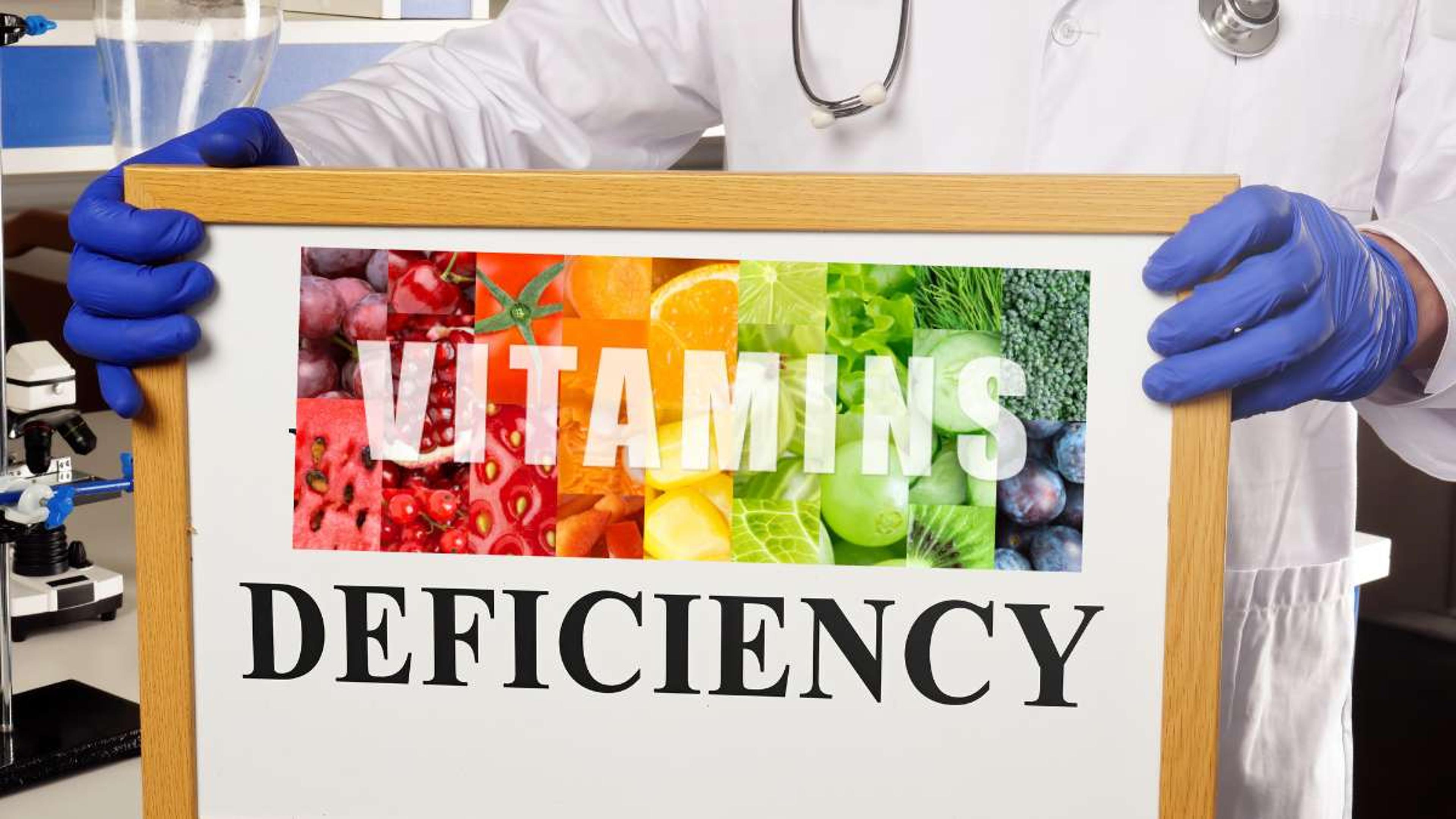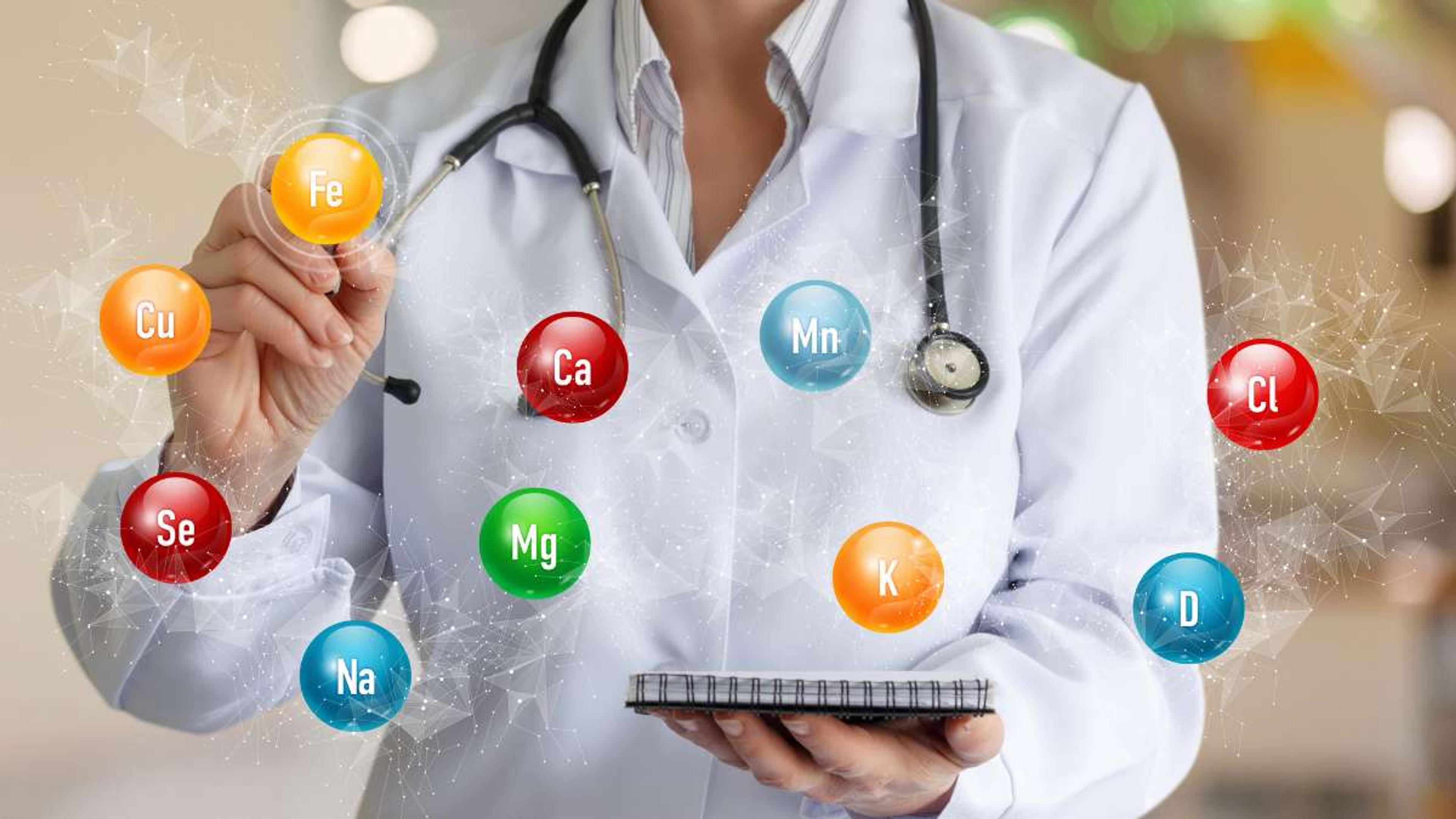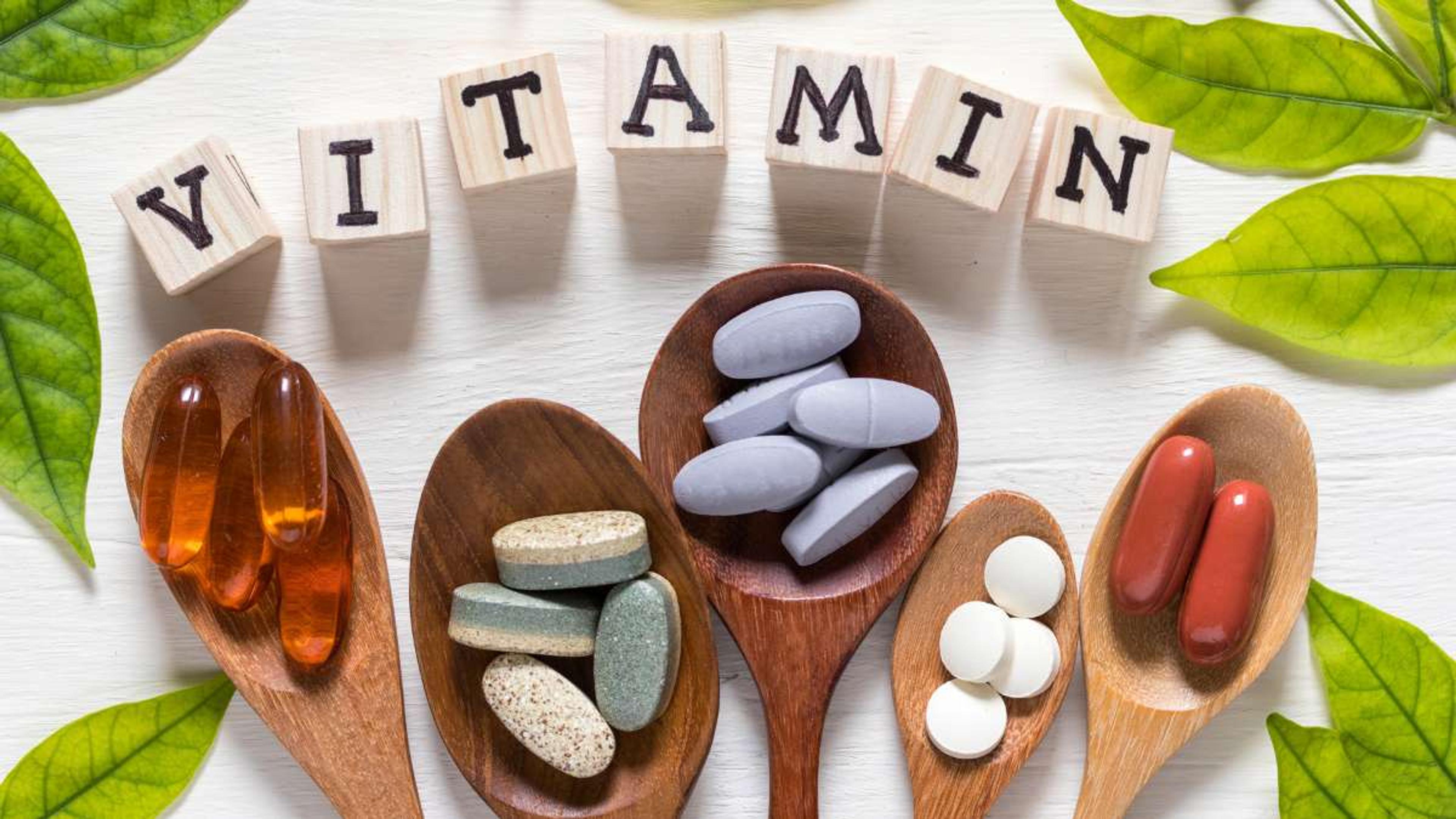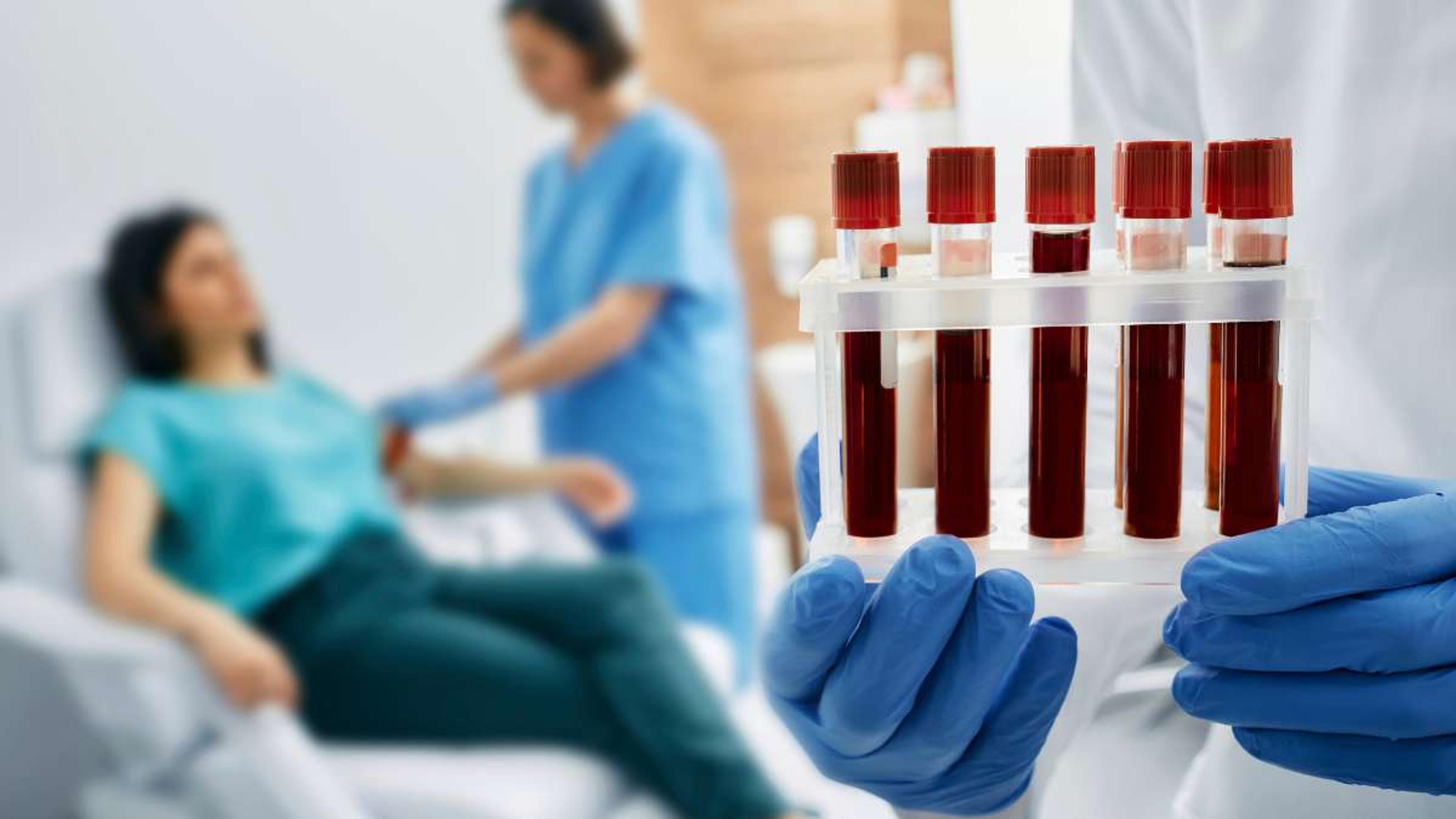Vegan Diet Vitamin Deficiencies: Causes and Solutions

- Key Takeaways
- Common Vitamin Deficiencies in a Vegan Diet
- Health Risks and Implications of Vitamin Deficiencies
- Strategies to Prevent Vitamin Deficiencies on a Vegan Diet
- Conclusion
- FAQs
Are you on a vegan diet and worried about potential vitamin deficiencies? It's true, avoiding all animal foods can lead to some nutrient shortages. This blog will guide you through the common vitamin deficiencies in a vegan diet, their health implications, and effective strategies to overcome them.
Keep reading for your roadmap to maintaining optimal health on a plant-based diet!
Key Takeaways
- Vegans who eliminate animal products from their diet are at risk of vitamin deficiencies, including vitamins B12, D3, and omega-3 fatty acids.
- Vitamin deficiency anemia can occur in vegans due to low levels of vitamin B12 or B9.
- Nutrient deficiencies in a vegan diet can lead to health issues such as fatigue, weakness, nervous system disorders, and impaired immune function.
- Strategies to prevent vitamin deficiencies on a vegan diet include eating a balanced diet with plant-based nutrition sources, considering supplements or fortified foods if needed, regular blood tests, and seeking guidance from a registered dietitian.
Common Vitamin Deficiencies in a Vegan Diet
Vitamin B12, creatine, carnosine, vitamin D3, omega-3 fatty acids, docosahexaenoic acid (DHA), heme iron, and taurine are common vitamins and nutrients that can be deficient in a vegan diet.

Vitamin B12
Vitamin B12 is key to staying healthy. It comes mainly from fish, meat, eggs, and dairy products. Vegans do not eat these foods. However, vitamin B12 is present in a number of vegan foods including seaweed (nori), shitake mushrooms, nutritional yeast and fortified foods. However, very evidently vegans have limited choices for B12. This is why vegans have a hard time getting enough vitamin B12 in their diet.
Deficiencies in vitamin B12 can put vegans at risk leading to feeling weak or tired. It can also cause problems with your nerves and red blood cells.
Therefore, you need to keep an eye on your vitamin B12 if you are vegan!
Creatine
Creatine is a nutrient that helps our bodies in many ways. It gives us energy and keeps our brains sharp. Creatine-rich vegan foods include legumes, nuts, and seeds. However, the amount of creatine obtained from these sources is relatively low compared to animal-derived products like meat and fish.
If creatine is not consumed sufficiently, it can result in lower energy levels, decreased cognitive function, and reduced muscle strength. To mitigate this deficiency, vegans may consider taking creatine supplements that are derived from non-animal sources.
There are ways for vegans to get more creatine though. One way is through protein supplements, such as powders or drinks. These can help make up for the missing creatine and keep vegans healthy and strong.
Carnosine
Carnosine is a dipeptide made up of two amino acids - beta-alanine and histidine. It is mainly found in animal-derived products like meat and fish. Unfortunately, carnosine-rich vegan foods are quite limited. Therefore, people who follow a vegan diet often have less of it in their bodies.
Some vegan alternatives that contain small amounts of carnosine include soybeans, tempeh, and mushrooms. However, if these sources are not consumed adequately, it may not provide sufficient levels of carnosine for optimal health benefits.
Carnosine plays a crucial role in various bodily functions, such as buffering acids in muscles and protecting cells from oxidative stress. This nutrient also plays an important role in our health and brain function.
One way to add carnosine into a vegan diet may be through supplements.
Vitamin D3
Vitamin D3 is crucial for maintaining strong bones and teeth, supporting immune function, and regulating mood. It's mainly found in animal products like fatty fish and egg yolks. Vegan sources of vitamin D3 include fortified plant-based milks and cereals, mushrooms, and supplements derived from lichen or algae.
Deficiency in this vitamin can lead to bone disorders such as osteoporosis and increased risk of infections. While vegan sources of vitamin D3 are available, it may be challenging to obtain sufficient levels solely through diet. Therefore, supplementation is often recommended for vegans to ensure they meet their daily requirements.
This is especially true during the winter months when sun exposure, another source of vitamin D, is limited. A lack of vitamin D can lead to health issues, particularly in terms of bone health.
So it's important for vegans to consider supplementation or fortified foods to ensure they're meeting their vitamin D needs. Remember that consulting with a registered dietitian can also help provide guidance on how to maintain optimal levels of this essential nutrient while following a vegan lifestyle.
Omega-3 Fatty Acids
A vegan diet may lead to deficiencies in omega-3 fatty acids, which are primarily found in animal-sourced foods. However, plant foods do contain a type of omega-3 called alpha-linolenic acid (ALA).
Some good sources of ALA for vegans include walnuts, chia seeds, hemp seeds and flax. These foods provide short-chain omega-3 fatty acids that the body can convert into the longer-chain EPA and DHA.
Another option for vegans is to take vegetarian omega-3 supplements to meet their needs for these essential fatty acids.
Docosahexaenoic acid (DHA)
DHA is an important nutrient for brain health. It is mainly found in fish and seafood, which are not included in a vegan diet. This means that vegans may have a deficiency of DHA unless they find alternative plant-based sources or take supplements. DHA rich plant based foods include
Lifetime deficiency in DHA could potentially increase the risk of cognitive dysfunction in vegans. Therefore, it's crucial for vegans to ensure they are getting enough DHA through supplementation or by finding plant-based sources rich in this essential nutrient.
Heme iron
Heme iron is a type of iron that is found only in animal-based foods. It is more easily absorbed by our bodies compared to non-heme iron, which is found only in plant-based foods. Vegetarians who follow a vegan diet may have a higher risk of iron deficiency if non-heme iron rich foods are consumed inadequately.
Non-heme iron, which comes from vegan sources, is relatively not as well absorbed by the body. Iron is an important nutrient because it helps make hemoglobin, which carries oxygen in our blood.
When we don't get enough iron, we can develop iron deficiency anemia. For better absorption of iron, vegans must consume iron-rich foods along with vitamin C rich foods. If your iron profiles are still low, it would be recommended for you to reach out to your health care provider to obtain iron supplements along with supplements for vitamin C.
Taurine
Taurine is an amino acid that acts as an antioxidant and has various important functions in our bodies such as regulating calcium levels, supporting the development of the nervous system, and aiding in the digestion of fats. It is primarily found in animal-based foods such as meat, fish, and dairy products.
To ensure adequate taurine intake, vegans can consider consuming plant-based sources such as seaweed, algae, beans and fortified plant-based alternatives.
However, it may be challenging to get sufficient amounts of taurine solely from these sources. Hence, taurine is one of the important nutrients that may be lacking in a vegan diet.
This means that vegans need to pay extra attention to ensure they are getting enough taurine in their diet. Taurine also plays a crucial role in various functions of the body, including regulating electrolyte balance, supporting heart health, and promoting proper nervous system function.
It's important for vegans to consider adding sources of taurine into their diet or consulting with a registered dietitian to ensure they are meeting their nutritional needs while following a plant-based lifestyle.
Health Risks and Implications of Vitamin Deficiencies
Vitamin deficiencies in a vegan diet can lead to various health risks and implications, including anemia, fatigue, weakness, nervous system disorders, and impaired immune function.

Anemia
Anemia is a condition that can occur if you don't get enough iron and vitamins like vitamin B12 in your diet, especially if you follow a vegan lifestyle. Anemia happens when your body doesn't make enough healthy red blood cells.
These cells carry oxygen to different parts of your body, so when you're anemic, you might feel tired and weak. Vegan diets can sometimes lack vitamin B12 because it's mainly found in animal products like meat and eggs.
Not getting enough of this vitamin can increase the risk of anemia for vegans. It's important for vegans to find plant-based sources of vitamin B12 or take supplements to prevent this deficiency and keep their bodies healthy.
Fatigue
Fatigue, or feeling tired and lacking energy, can be a common symptom of nutrient deficiencies in a vegan diet. Inadequate intake of niacin (vitamin B3) can result in fatigue. Deficiencies in vitamins B12 and D3, which are commonly found in vegan diets, can also lead to fatigue.
When following a vegan diet that avoids all animal foods, it's important to ensure you're getting enough essential nutrients to prevent nutritional deficiencies, including fatigue.
Specifically, a lack of vitamin B12, commonly found in vegans, can contribute to feelings of fatigue. It's crucial for vegans to pay attention to their nutrient intake and consider supplementation or fortified foods to meet their nutritional needs and maintain optimal energy levels.
Weakness
Vegans and vegetarians may experience weakness if they don't get enough essential nutrients in their diet. One common nutrient deficiency that can lead to weakness is vitamin B12. Since this vitamin is mainly found in animal foods, vegans need to make sure they are getting it from other sources like fortified foods or supplements.
Without enough vitamin B12, people may feel fatigued and weak. It's important for vegans to be aware of the nutrients they might be missing out on and take steps to prevent deficiencies that can cause weakness.
Nervous system disorders
Vitamin deficiencies in a vegan diet can have significant implications for the nervous system. One of the key nutrients that vegans may lack is vitamin B12, which is essential for maintaining healthy nerve function.
Without enough vitamin B12, individuals may experience neuropathy, which can lead to tingling sensations or numbness in the hands and feet. In severe cases, long-term deficiency can cause permanent nerve damage.
It's important for vegans to be aware of these potential risks and take steps to ensure they are getting adequate amounts of this vital nutrient through supplementation or fortified foods.
Impaired immune function
Deficiencies in important vitamins like B12, omega-3, calcium, zinc, and iron can lead to impaired immune function. These micronutrients play a crucial role in supporting the immune system and keeping it strong.
When we don't get enough of these nutrients in our vegan diet, our immune system may not work as effectively as it should. This can increase the risk of getting sick or developing certain diseases.
It's important for vegans to make sure they are getting enough of these vitamins through supplements or fortified foods to support their immune function and overall health.
In addition, following a Western-type diet that lacks essential nutrients can cause inflammation and disrupt immune system function. This puts us at a higher risk for developing chronic diseases like heart disease and cancer.
Nutrient deficiencies have been shown to weaken the immune response and impair its ability to fight off infections and other harmful invaders.
Therefore, it is crucial for vegans to pay attention to their nutrient intake and take steps to prevent deficiencies by eating a balanced diet rich in plant-based sources of nutrition, considering supplements when necessary, incorporating fortified foods into their meals planning regularly so that they can ensure adequate vitamin levels maintain good overall health.
Strategies to Prevent Vitamin Deficiencies on a Vegan Diet
To prevent vitamin deficiencies on a vegan diet, it is important to eat a balanced diet with plant-based nutrition sources, including fortified foods and supplements. Regular blood tests and consulting with a registered dietitian can also help ensure adequate nutrient intake.

Eating a Balanced Diet with Plant-Based Nutrition Sources
To prevent vitamin deficiencies on a vegan diet, it is important to eat a balanced diet with plant-based nutrition sources. Here are some key strategies:
- Include a variety of colourful fruits and vegetables and green leafy veggies like broccoli in your meals for essential vitamins and minerals.
- Include a variety of plant-based proteins, such as legumes (beans, lentils), tofu, tempeh, and edamame.
- Add healthy fats to your meals with sources like avocados, nuts (such as walnuts), and seeds (like chia or flaxseeds).
- Use fortified plant-based milk alternatives that provide calcium and vitamin D.
- Incorporate whole grains like quinoa, brown rice, and oats for fiber and nutrients.
- Consume legumes such as beans, lentils, and chickpeas for protein, iron, and zinc.
- Include nuts and seeds like walnuts, chia seeds, and flaxseeds for healthy fats and omega-3 fatty acids.
- Incorporate calcium-rich foods like tofu, almonds, leafy greens (spinach, kale), and fortified non-dairy milk alternatives.
- Make sure to get enough vitamin B12 through fortified foods like plant-based milk or take a supplement if needed.
- Consider using iodized salt or eating seaweed or sea vegetables to avoid iodine deficiency and to get omega-3 fatty acids like DHA.
Supplements
Supplements can be an important part of preventing vitamin deficiencies on a vegan diet. One key supplement to consider is Vitamin B12, as it is primarily found in animal products.
Vegans should look for supplements or fortified foods that contain this vital nutrient. Additionally, vegan or vegetarian multivitamins should also include iodine and zinc to ensure proper intake.
It's important to note that iron supplements should only be taken if recommended by a doctor, as excessive iron intake can have negative health effects. The Academy of Nutrition and Dietetics highlights the risk of vitamin B12 deficiencies in vegetarians and vegans, emphasizing the need for supplementation in these diets.
Fortified Foods
Fortified foods are an important strategy for vegans to prevent vitamin deficiencies in their diet. These foods have been enriched with specific nutrients that may be lacking in a vegan diet, such as vitamin B12, calcium, iron, and zinc.
Fortified foods can help vegans ensure they are meeting their nutrient needs without relying solely on supplements or animal products.
One nutrient that is commonly fortified in vegan-friendly foods is vitamin B12. This is because vitamin B12 is primarily found in animal products, making it difficult for vegans to obtain enough of this essential nutrient from their diet alone.
By consuming fortified plant-based milk alternatives, breakfast cereals, or nutritional yeast, vegans can increase their intake of vitamin B12 and reduce the risk of deficiency.
In addition to vitamin B12, other vital nutrients like calcium and iron can also be found in fortified plant-based food products. Calcium-fortified orange juice or plant-based milk can help meet the recommended daily intake of this mineral for strong bones and teeth.
Iron-fortified cereals or tofu made with added iron are great options for boosting iron levels and preventing anemia.
Regular Blood Tests

Regular blood tests are an important tool for individuals following a vegan diet to ensure they are getting the necessary nutrients. These tests can help identify deficiencies in vitamins like B12, omega-3, calcium, zinc, and iron.
By regularly monitoring their blood levels, vegans can make informed decisions about appropriate supplementation or adjustments to their diet. Regular blood tests provide valuable information that can guide individuals towards achieving a well-balanced and adequate vegan diet to support their overall health and well-being.
Consulting with a Registered Dietitian
A registered dietitian can provide valuable guidance and support for individuals on a vegan diet. They can help develop personalized strategies to prevent nutrient deficiencies, ensuring that all essential vitamins and minerals are adequately incorporated into the diet.
A registered dietitian will work with you to create balanced meal plans, recommend fortified foods or supplements if needed, and monitor your long-term nutrient status through regular blood tests.
This is especially crucial for vegans who avoid common sources of vitamin B12, as they are at a higher risk of deficiency. By consulting with a registered dietitian, you can ensure that your vegan diet is nutritionally sound and meets all your body's needs.
Conclusion
In conclusion, a vegan diet can lead to deficiencies in important vitamins like B12, omega-3, and iron. However, by incorporating balanced plant-based nutrition sources, taking supplements, and consulting with a registered dietitian, these deficiencies can be prevented.
It's essential for vegans to prioritize their nutrient intake to maintain optimal health and well-being.
FAQs
1. Can a vegan diet cause vitamin deficiencies?
Yes, a vegan diet can potentially lead to certain vitamin deficiencies if not properly planned and balanced.
2. Which vitamins are commonly lacking in a vegan diet?
Some vitamins that may be lacking in a vegan diet include vitamin B12, vitamin D, iron, calcium, and omega-3 fatty acids.
3. How can I prevent vitamin deficiencies on a vegan diet?
To prevent vitamin deficiencies on a vegan diet, it is important to consume fortified plant-based foods or take supplements for nutrients like B12 and D. Including a variety of fruits, vegetables, whole grains, legumes, nuts, and seeds can also help meet nutrient needs.
4. Should I consult with a healthcare professional before starting a vegan diet?
It is recommended to consult with a healthcare professional before starting any new dietary regimen to ensure that your nutritional needs are being met and to address any concerns about potential vitamin deficiencies.

